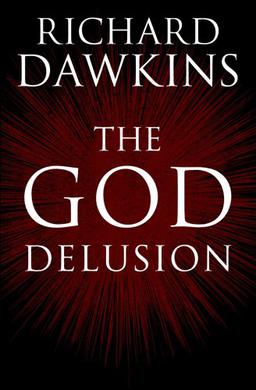Blanchard's complete disregard for the other side of the story has completely turned me off. He doesn't really try to understand evolution before attacking it. He doesn't really try to understand humanism before attacking it. He gives only a cursory pass at each of the religions he dismisses as deeply flawed.
And so I have no interest in reading on to see why he thinks his own beliefs are so much better.
Blanchard uses his impressively extensive reading as a way to gather quotes around which to build straw men. I suspect that he generally doesn't realize he's doing this. He probably believes that folks like me really do hold the mickey-mouse philosophy he labels "humanism". But that's no excuse: it's his job, as an author aiming to engage me, to actually know where I'm coming from. He doesn't have to agree with me; I enjoy a couple of blogs by committed Christians who I often disagree with. But he does have to show some effort to understand where I'm coming from.
 I (along with most atheists) am not certain there is no god. I have come across credible humanist approaches to the idea of "truth" in a largely material model of consciousness. I invite Blanchard to try reading any of the accessible introductions to Humanism that have appeared recently. Try On Humanism by Richard Norman (my own first exposure to the philosophy of Humanism).
I (along with most atheists) am not certain there is no god. I have come across credible humanist approaches to the idea of "truth" in a largely material model of consciousness. I invite Blanchard to try reading any of the accessible introductions to Humanism that have appeared recently. Try On Humanism by Richard Norman (my own first exposure to the philosophy of Humanism).  Try What's it all about? by Julian Baggini. Heck, even try reading (really reading) The God Delusion by Richard Dawkins - even that has a more plausible and nuanced atheist perspective than the one Blanchard conjures up to attack.
Try What's it all about? by Julian Baggini. Heck, even try reading (really reading) The God Delusion by Richard Dawkins - even that has a more plausible and nuanced atheist perspective than the one Blanchard conjures up to attack.What Blanchard teaches me is not that Christians, or religious people, are lazy thinkers. It's not that humanists are superior to folks like him. We're not.
 The lesson is that humans are lazy thinkers. I have fallen prey to the same types of errors that I have criticized in Blanchard's book, and I am bound to do so again. (See here for a recent example on this very blog.)
The lesson is that humans are lazy thinkers. I have fallen prey to the same types of errors that I have criticized in Blanchard's book, and I am bound to do so again. (See here for a recent example on this very blog.)We (humans) like to give the benefit of the doubt to arguments whose conclusions we already agree with, and we like to see the worst in arguments that lead where we don't want to follow. I'm more likely to double-check sources when I disagree with someone than when I agree with them. Hopefully, the knowledge that our critics are watching, combined with the conviction that we are fallible, will teach us all to be more careful in avoiding these errors.
Another reason for these posts is that, sometimes, I simply need to vent. Although I want to present as positive a face to the world as possible - to exhibit "exemplary behaviour", as my parents always exhorted me growing up - I also want to present an honest face. I want you, my faithful reader, to know that I sometimes get pissed off. I get angry when someone trashes my beliefs.
But please also note that, when I get angry, I try to respond with reason and compassion. I have tried to give Blanchard the benefit of the doubt - though sometimes that means assuming he's lazy rather than malicious. I have tried to produce coherent, logical arguments for my position, with pointers to good-quality references where relevant.
For some non-partisan discussion of some of the issues raised here - such as the nature of humanism, the religious implications of the evidence for our biological history (evolution), and details on other religions, I heartily recommend www.religioustolerance.org. It is run by the Ontario Consultants on Religious Tolerance, a team of individuals with different religious beliefs, who seek to promote tolerance through understanding. Have a poke around there for more details.
And, as always, the comments are open. If I'm wrong in what I say above, tell me.




No comments:
Post a Comment
This blog has now moved to a new domain:
http://friendlyhumanist.net/
Note: only a member of this blog may post a comment.